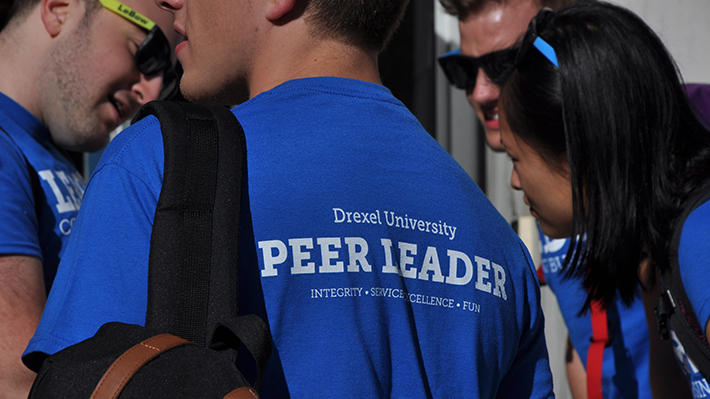
Being a Peer Mentor Has Career Advantages
College freshmen who are mentored by older students tend to become more motivated, improve their study skills, stay in school and succeed. But what about the older students doing the mentoring? Do they see any benefits?
The answer is a resounding “yes,” say two clinical professors at Drexel LeBow, Dana D’Angelo and Susan Epstein. Their research paper, “Developing University Peer Mentors as Second Chair Leaders,” won a “best paper” award at the recent Academy of Business Research Conference in San Antonio, Texas, and it will be published by the Academy of Business Research Journal.
“We found that upperclassmen who serve as mentors improve their emotional intelligence and their career prospects,” D’Angelo said. “Mentors are more likely to find jobs when they graduate than are students who do not serve as mentors.”
Drexel LeBow launched its peer mentoring program more than 15 years ago. D’Angelo and Epstein’s research examined changes in perceptions regarding leadership development among 19 peer mentors, about 200 mentees and 18 faculty advisers.
“Traditionally, the benefits of the use of peer mentors in the classroom have focused on the outcomes achieved by the mentee,” the professors write. “Peer mentoring provides these students the opportunity to receive guidance, support and instruction from someone … who has met the challenges of the academic environment. Peer mentors are able to motivate mentees to reach the next level of success, while offering advice on how to get there.”
The researchers used the four roles of a leader identified by Steven Covey: modeling, or building trust with others; aligning, or creating processes to foster success; pathfinding, or creating a blueprint of values, vision and strategy; and empowering, or creating conditions that let others’ realize their potential. Faculty advisers and student mentees rated the mentors on all attributes at the end of the mentorship experience, as did the mentors themselves; the results showed significant improvement in all areas.
In addition, prior to the experience, mentors thought that modeling or building trust with their mentee would be the attribute they would focus on the most, but they found that they spent most of their time empowering their mentees.
“Peer mentors themselves perceive significant growth in their leadership development through participation in the peer mentoring program,” the professors write. “They have a positive outlook on their role … particularly in the area of emotional intelligence.”




